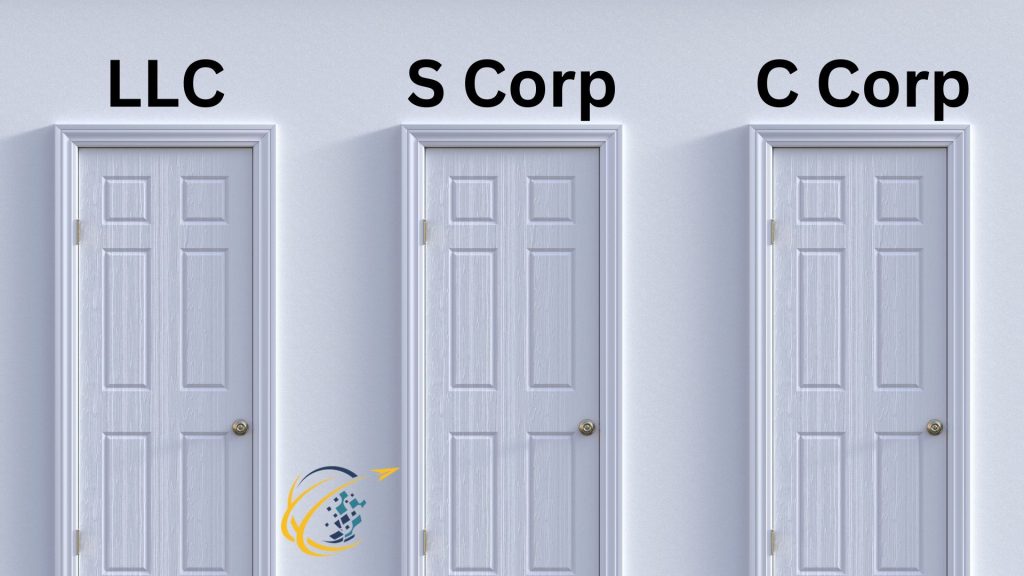Choosing the right business structure is one of the most important decisions an entrepreneur can make. The structure you choose affects your taxes, legal liabilities, and ability to raise capital. Therefore, understanding the various options is crucial for setting up a business that aligns with your goals. This article explores the key factors to consider when choosing the right business structure, helping you make an informed decision that supports your long-term success.
Understanding the Importance of Business Structure
Choosing the right business structure is more than just a legal formality. It determines how you will operate your business, distribute profits, and handle taxation. The right structure can provide legal protection, tax advantages, and the flexibility to grow. Conversely, the wrong structure can lead to unnecessary costs, legal complications, and operational inefficiencies. Understanding the importance of business structure helps you align your business model with your strategic objectives. By selecting the appropriate structure, you can create a solid foundation for your business and avoid potential pitfalls down the road.
Exploring Common Business Structures
When choosing the right business structure, it’s essential to understand the most common types and their implications. The four main business structures are sole proprietorship, partnership, limited liability company (LLC), and corporation. Each structure offers different levels of liability protection, tax treatment, and operational flexibility. A sole proprietorship is the simplest and most common structure, ideal for single-owner businesses. However, it offers no liability protection. Partnerships allow two or more individuals to share ownership but also share liabilities. LLCs combine the liability protection of a corporation with the tax benefits of a partnership. Corporations offer the most robust liability protection but come with more regulatory requirements and double taxation on profits. Understanding these options is crucial when choosing the right business structure that aligns with your needs.
Assessing Liability and Risk
Liability is a significant factor when choosing the right business structure. Different structures offer varying levels of personal liability protection. For instance, sole proprietorships and partnerships do not shield owners from personal liability, meaning their personal assets are at risk if the business incurs debt or legal issues. On the other hand, LLCs and corporations provide limited liability protection, ensuring that owners’ personal assets are typically not exposed. Assessing the level of risk in your industry and your comfort with potential liabilities will guide you in selecting the appropriate structure. By prioritizing liability protection, you can safeguard your personal finances and reduce the risks associated with running a business.
Considering Tax Implications
Taxation is another critical consideration when choosing the right business structure. Different structures are taxed differently, impacting your overall profitability. Sole proprietorships and partnerships are subject to pass-through taxation, where business income is reported on the owners’ personal tax returns. This can simplify tax filing but may lead to higher personal tax rates. LLCs also benefit from pass-through taxation, but they offer the flexibility to be taxed as a corporation if it benefits the business. Corporations face double taxation, where the company pays taxes on profits, and shareholders pay taxes on dividends. However, corporations may offer tax advantages, such as deducting health insurance premiums for employees. Understanding these tax implications helps you choose a structure that minimizes your tax burden while maximizing your business’s financial health.
Evaluating Operational Flexibility
Operational flexibility is essential when choosing the right business structure. Different structures offer varying degrees of control over business decisions and operations. Sole proprietorships provide the most flexibility, allowing owners to make decisions without consulting partners or shareholders. However, this also means bearing all the responsibilities alone. Partnerships require collaboration and consensus among partners, which can be beneficial but may also lead to conflicts. LLCs offer flexibility in management, allowing owners to choose between member-managed or manager-managed structures. Corporations are more rigid, with formal requirements such as a board of directors and shareholder meetings. Evaluating your preferred level of control and the complexity of your business operations will help you select a structure that offers the right balance of flexibility and stability.
Considering the Future Growth of Your Business
Your business’s potential for growth should influence your decision when choosing the right business structure. Some structures, such as sole proprietorships and partnerships, may limit your ability to raise capital or expand. These structures can make it difficult to attract investors, as they do not offer ownership shares. LLCs and corporations, on the other hand, provide more opportunities for growth. Corporations, in particular, can issue stock to raise funds, making them more attractive to investors. If you plan to scale your business or seek external funding, choosing a structure that accommodates growth is essential. By aligning your business structure with your growth ambitions, you can position your business for long-term success.
Understanding Legal and Regulatory Requirements
Legal and regulatory requirements vary depending on the business structure you choose. Sole proprietorships and partnerships are relatively simple to set up and have fewer ongoing compliance requirements. LLCs require more formalities, such as operating agreements and annual filings, but offer significant legal protections. Corporations face the most stringent requirements, including maintaining a board of directors, holding annual meetings, and filing detailed reports. Understanding these legal obligations is crucial when choosing the right business structure, as non-compliance can result in fines, legal disputes, and the loss of liability protection. By considering the regulatory landscape, you can select a structure that balances legal protections with manageable compliance responsibilities.
Seeking Professional Advice
Choosing the right business structure is a complex decision that can have long-lasting implications for your business. While it’s essential to understand the basics, seeking professional advice from a lawyer or accountant is highly recommended. Professionals can provide insights tailored to your specific situation, helping you navigate the legal, tax, and operational considerations. They can also assist with the necessary paperwork and ensure that your business is set up correctly from the start. By consulting with experts, you can make an informed decision that aligns with your business goals and protects your interests.
Choosing the right business structure is a critical step in establishing a successful business. By carefully considering factors such as liability, taxation, operational flexibility, and future growth, you can select a structure that supports your business objectives. While the decision may seem daunting, taking the time to understand your options and seeking professional advice can help you make the best choice. The right business structure provides a solid foundation, enabling you to focus on growing your business with confidence. As your business evolves, remember that your structure can be adjusted to meet changing needs, ensuring that it continues to serve your goals effectively.


